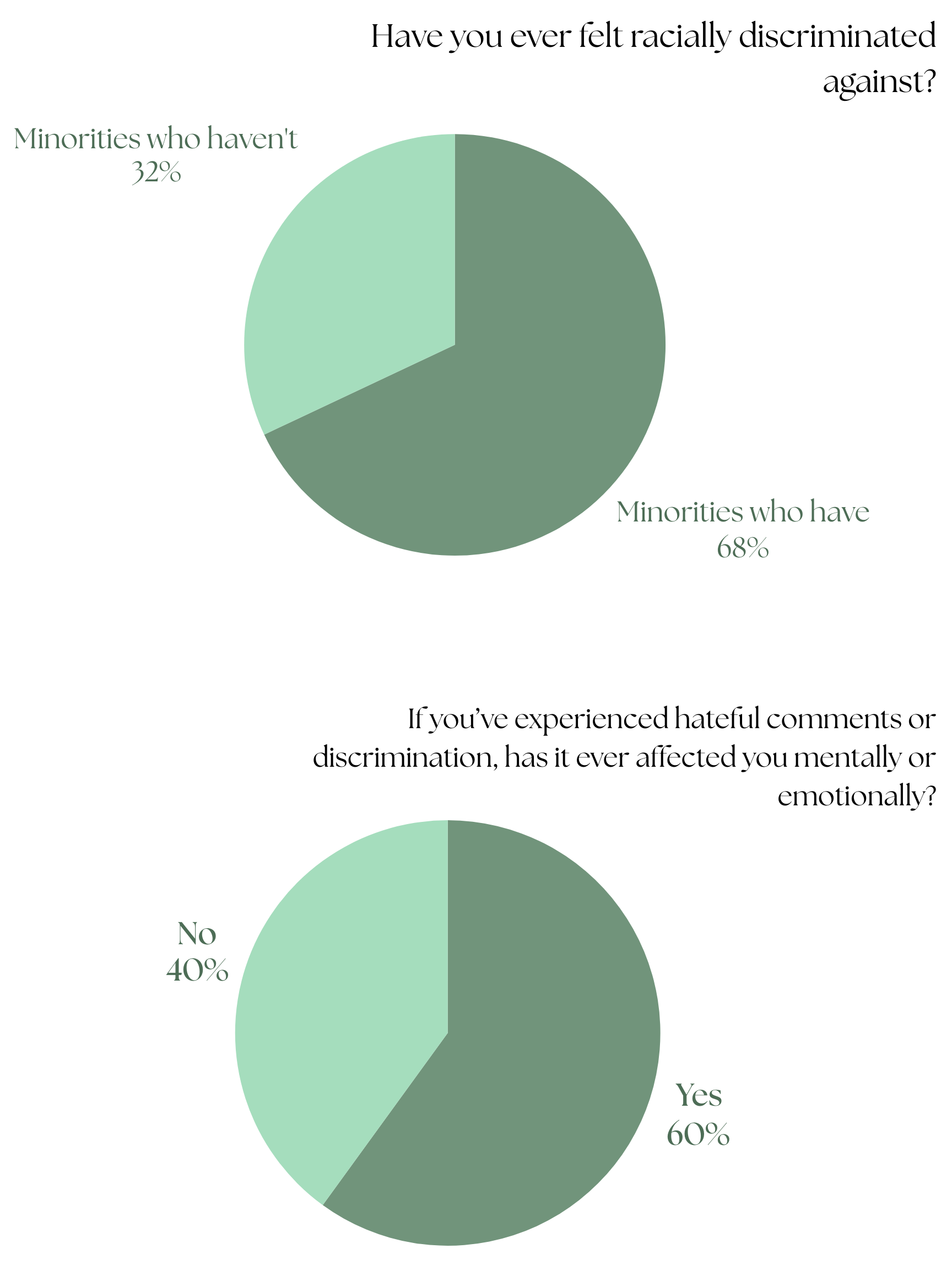The Anatomy of Oppression:
How Racism Shapes POC’s Minds and Bodies
As individuals experience racism, it profoundly alters both their minds and bodies in harmful ways. Exposure to racism begins affecting individuals as soon as childhood, shaping brain development during crucial years. This early impact disrupts emotional well-being and contributes to long-term struggles with self-esteem and mental health. Over time, the psychological toll of racism manifests physically, leading to serious health complications. The overall effect of racism is not just emotional or social—it leaves lasting marks on both mental and physical health, especially for people of color who face it daily.
ON THIS PAGE YOU’LL DISCOVER:
– How Racism Shapes the Brain from an Early Age
– The Impact of Racism on Self-Esteem and Mental Health
– The Effects of Racism on Physical Health
– Conclusion of the Anatomy of Oppression
How Racism Shapes The Brain From An Early Age
Racism is a learned behavior often acquired in early childhood through environmental influences. At this stage, children may be unaware of the harm they cause, normalizing discriminatory actions as playful behavior. All The Same conducted a survey of over 40 people of color to examine their experiences with racism. One respondent, Caitlin Chounlamountry, recalled being targeted in elementary school with slurs like “Ching Chong” and eye-slanting gestures—experiences that deeply affected her early development.
As racism is picked up in earlier stages of development, it causes significant effects on the brain. Research shows that children begin to recognize race and internalize negative societal messages as early as infancy. According to the Harvard Center on the Developing Child (n.d.), experiences of racism and discrimination can activate a child’s stress response system, leading to what is known as “toxic stress”—a condition that can interrupt healthy brain development. Toxic stress can cause long term consequences on learning and behavior. Children who either experience racism directly or witness it in their environment may develop internalized racist ideologies and mindsets, altering the way they perceive themselves and others.
A 2021 article by the American Psychological Association, children are not “colorblind,” and if racism is not actively addressed, they absorb societal messages that can lead to prejudice and discrimination. This early exposure shapes their beliefs and emotional development. Therefore, racism isn’t just a social issue—it’s a neurological one that begins impacting individuals from a young age, shaping their mental frameworks and influencing their future.
The Impact of Racism on Self-Esteem and Mental Health
Racism significantly impacts one’s self worth and mental health by fostering feelings of inferiority and trauma to those who experience it. According to a Raising Children’s Racism: what it looks like and how it affects children and teenagers, those who experience racism frequently develop mental illnesses such as depression and anxiety. These disorders lead to a bruised self esteem and prevalent suicidal thoughts that eat away from its victim’s mind. Over time, this pain can interfere with school performance, relationships, and their ability to feel safe and accepted.
Erica Lee, a psychologist at Boston Children’s Hospital, notes how “witnessing discrimination can negatively impact a child’s identity and self-esteem” (Barker 2021). Not only children, but teenagers too are vulnerable to the mental effects of discrimination. Since they are in a crucial stage of development and self-discovery, prejudice undermines their confidence and shapes a negative self-image of themselves.
Jana Mykaela Merin, a respondent from All The Same survey stated “I often felt alienated from a group of people because they looked at my race instead of trying to converse with me first. It was hard for me to approach a lot of groups that went beyond my community because I always felt like my race had something to do with it. I often overthink simple stuff such as an empty seat beside me on a train is related to the fact that I am a South East Asian. Nevertheless, I have learned to move forward from this mindset and start new”.
All The Same’s Racial Discrimination Experience survey collected that out of the 40+ POC that participated, over 68% felt racially discriminated against. Out of the 68% that felt racially discriminated against, 60% of them were affected mentally or emotionally.

The Effects of Racism on Physical Health
Although racism is known for its toll on emotional and mental health, racism can also lead to serious physical health concerns. According to Dr. David R. Williams from Harvard Health Publishing, How Racism Harms Children, children who experience racism are more likely to develop chronic conditions such as high blood pressure, obesity, and heart disease due to the prolonged stress it causes. This chronic stress triggers the body’s fight-or-flight response repeatedly, wearing down the immune system and increasing vulnerability to illness.
Stop Hate UK’s study, How Racism Affects Health, further explains that racism elevates stress levels, which can contribute to poor coping habits such as substance use, unhealthy eating, and physical inactivity. These behaviors combined with the physical toll of stress hormones like cortisol can lead to a long-term health deterioration.
Therefore, racism is not only a social and emotional issue—it poses a direct threat to physical health, especially when its effects remain unchecked.
While racial discrimination is usually brushed off as a joke or playful banter, its effects are anything but harmless. It shapes the way individuals think, feel, and act—starting from early childhood and continuing throughout their lives. Racism leaves lasting scars; not just mentally, but physically. It’s a health crisis that deserves immediate attention to create a healthier, more inclusive community. Recognizing the seriousness of inequity towards marginalized groups is pivotal in understanding the full extent to racism.
Written by Vivian Ho and Anika Luangaphay
4/19/25.
